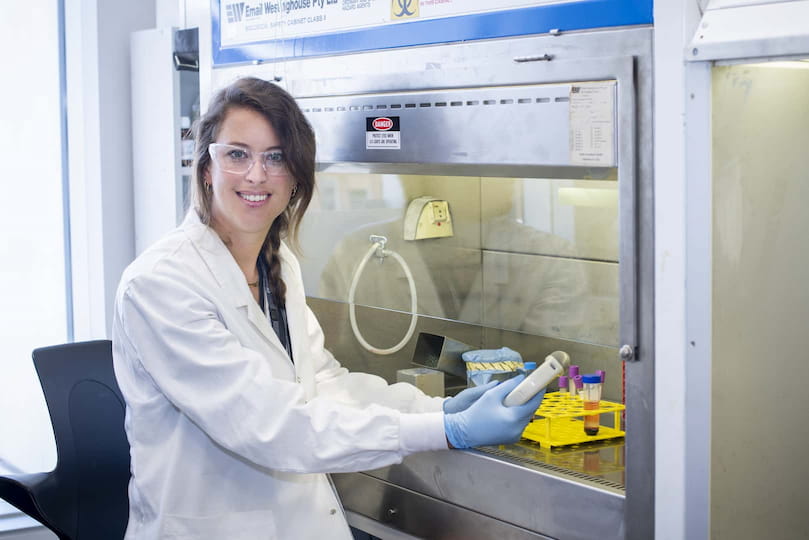Dr Rachel Thijssen: Understanding more about why people with chronic lymphocytic leukaemia can become resistant to treatment

Chronic lymphocytic leukaemia (CLL) is the most common type of adult leukaemia, with over 2,200 Australians predicted to be diagnosed with CLL this year.
CLL is a type of slow-growing leukaemia that affects developing lymphocytes in the body (specialised white blood cells).
The drug Venetoclax is a highly effective treatment for patients and has transformed the outlook for many patients.
Despite the ability of Venetoclax to achieve long-lasting responses in people with CLL, in most patients the cancer eventually returns while on treatment.
Rachel’s research will focus on unravelling what drives Venetoclax resistance, with a view to developing new approaches to treat CLL more effectively, and significantly improve patient outcomes.
About Rachel
Born in the Netherlands, Rachel completed her PhD in the Immuno-Hematology department of the Academic Medical Center (AMC) in Amsterdam in 2016. She moved to Australia in 2017 to take up her first postdoctoral appointment at the Walter and Eliza Hall Institute of Medical Research, a world-leader in cell death studies.
Last updated on January 30th, 2023
Developed by the Leukaemia Foundation in consultation with people living with a blood cancer, Leukaemia Foundation support staff, haematology nursing staff and/or Australian clinical haematologists. This content is provided for information purposes only and we urge you to always seek advice from a registered health care professional for diagnosis, treatment and answers to your medical questions, including the suitability of a particular therapy, service, product or treatment in your circumstances. The Leukaemia Foundation shall not bear any liability for any person relying on the materials contained on this website.